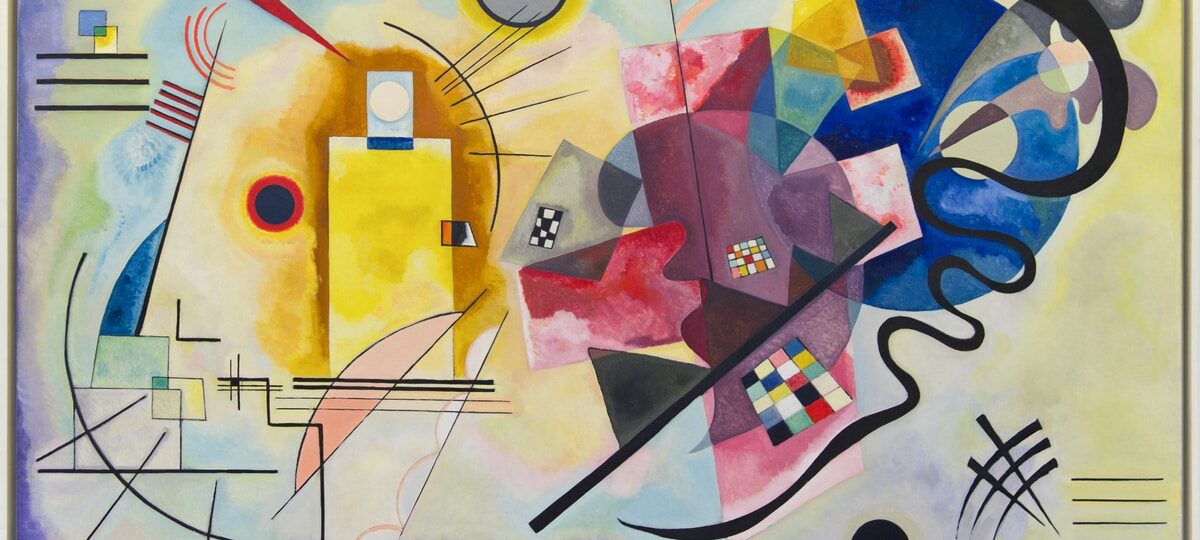
Studying the world around us, we observe that all our activities, from the simplest to the most complex, are the results of two combined processes of our logical and deliberative mind: planning and doing. Every purpose is justified as right, and therefore practical, if the conditions for which it is designed are deemed ideal. This is of course true when there is no special obstacle capable of altering, suspending or rejecting the planned design. Such obstacles may be moral, emotional, practical, or a combination, usually posed by ourselves, when we calculate that the weight of the burden contained in the design and the means we prefer to use to carry it out are more harmful than beneficial in relation to the original purpose. In the above rule, the notions of the reasonable, the irrational are tested, the criteria of the expedient, the non-expedient are balanced, and the forces of predictability are tested in relation to our pursuits derived from ideas. But what are ideas and how do they work in relation to beneficence?
Ideas, as we consider them here, are assumptions of reason cultivated for the purpose of seizing opportunities and reaping benefits. They are creative thoughts, intended to respond effectively to the necessity of the moment. The effectiveness of ideas is judged by their accuracy relative to their original objective. Any idea which deviates from its design and is driven to successful results by chance events cannot be judged as effective or original. The account of the idea therefore does not precede but follows its realisation; and the account of any idea that has been adopted and implemented is the product of the ratio between the prediction and the result.
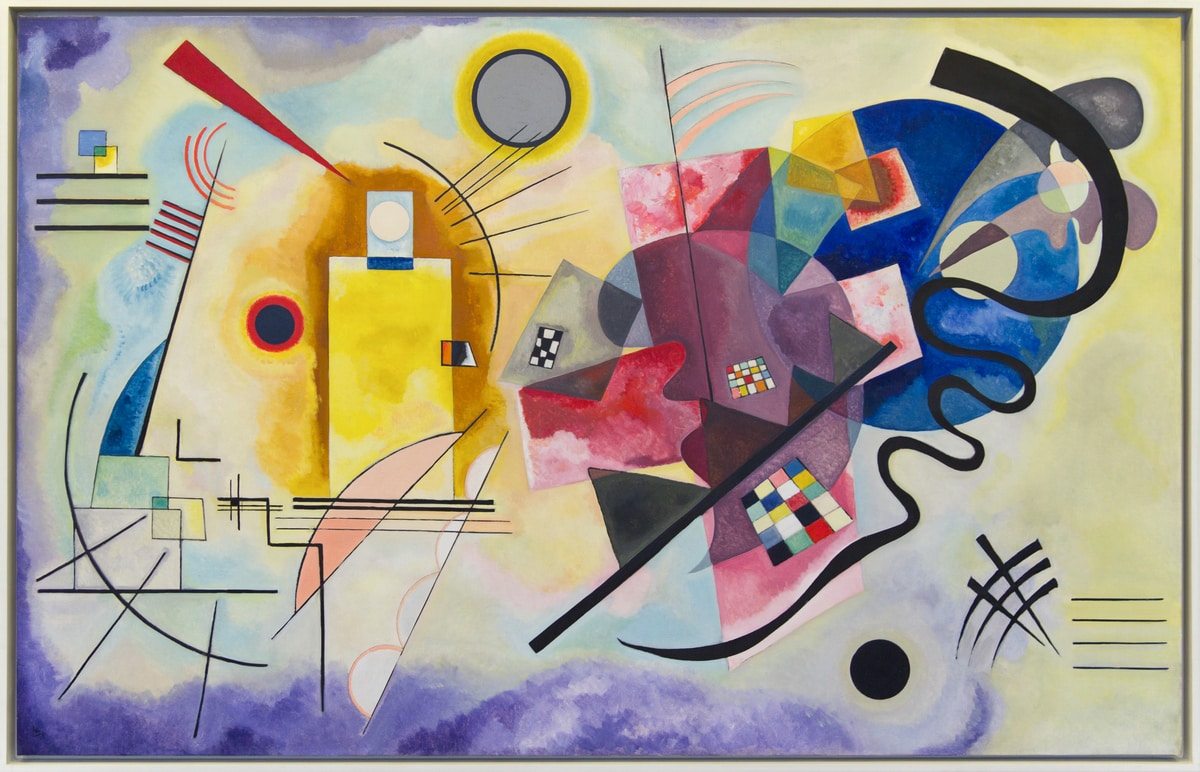
Wassily Kandinsky, Κίτρινο-Κόκκινο-Μπλε / Wassily Kandinsky, Yelloow – Red – Blue
Let us keep two things in mind: a) every action we take is a single, unique and irreversible change in the environment, b) conclusions do not work from the outcome to our deliberative decision, since reality does not provide us with the possibility of restoring without cost every situation prior to our action. In view of the above, it would be a mistake to imitate verbatim a “good example” of someone else’s applied design, even if it would seem appropriate for our own purposes.
Each reasonable probability is a statistical datum, which can be modified in the directions imposed by the moment. Before our purposes are applied, therefore, we must be sure that the changes that will result: a) will be of greater benefit than harm and b) will not cultivate the ground for the creation of new, unforeseen situations. Following the above rule, we prefer the positive perspective of beneficial planning and fortify the existing reality from possible reversals .Otherwise, planning risks running into damaging situations, the management of which will not be easy to manage, since every attempt to resolve them will create new problems.
A favourite example to avoid adverse situations due to inadequate strategic planning comes directly from the theoretical mind of one of the greatest philosophers, whose special weight has been influencing Western intellectuals for 2500 years. We refer to the example of Plato and the ideal state, which he proposed in his work Politia or On Law.
Claiming a major distinction in his thought, aiming directly at the level of practicality, Plato designed a socio-political model, in his opinion ideal, in order to influence universally the relations between the governed and the governed. According to Plato’s plan, if all regimes agreed to follow his idea, a secure, intercultural and universal condition of coexistence would be created, the result of which would be bliss. And what was the proposed political programming?
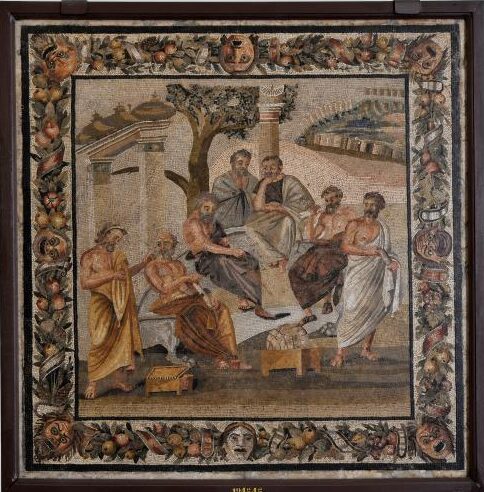
Ψηφιδωτό της Σχολής του Πλάτωνα ή ψηφιδωτό των Φιλοσόφων / Plato’s Academy mosaic
Plato suggested that the ideal polity could be successfully implemented if the structure of all political planning followed an absolutely strict tripartite structure, having at the top the philosophers, i.e. those who are naturally capable of strategically planning and carrying out matters of power and control using logic, the guardians, the persons whose biology and psyche flow towards natural dynamism and – hence – the ability to settle issues of internal and external security, and the ability to deal with issues of internal and external security. Further, the ideal state ought to have exclusive control over the education of the young, taking them away from their natural parents at an early age and educating them according to their natural inclinations.Beyond the educational value offered by the example of the reflection and analysis of a major philosopher of the classical period, one might reasonably ask whether the design of the ideal state could be implemented and with what consequences?
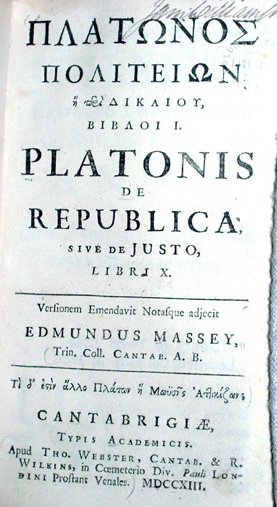
Η Πολιτεία του Πλάτωνα, έκδ. 1713 / Plato, The Republic, 1713
The answer to the above question is given by history itself, as Plato did indeed attempt to establish his political project in Sicily, under the agreement and supervision of the tyrant of Syracuse, Dionysius II. To this end, Socrates’ disciple made two trips to Greater Greece, which proved fruitless, as the practice he proposed proved impracticable. In fact, during his second visit, Plato was imprisoned by the tyrant Dionysius and needed the intervention of the philosopher and general Archytas in order to win his freedom. After his return to Athens, Plato ceased to be involved in political affairs, founded the Academy and confined himself to teaching philosophy.

Διονύσιος, Τύρραννος των Συρακουσών / Dionysiys, Tyrant of Syracuse
The fact of Plato’s failure is indicative of the intellectual transgression to which anyone can run into when the space of his rational mind is taken up by the exuberance of arbitrary estimates.In this state the deliberative mind is falsely affirmed for the correctness of the rational estimate and rushes to set unattainable ends. By reversing the rule between prediction and result, the attachment to the authority of the individual theoretical criterion is to understand the distance between idea, which as we have said operates on the basis of scripts of reason, and application, i.e. intended change. It is a state of mental hardening which isolates the will from logic, the end from the means of achievement, under the weight of an egoism which prevents the theoretical mind from applying first and foremost the major rule of sound strategic tactics: modest, unbiased supervision and logical analysis.
Given that from classical times to the present day our brain structure has changed little or not at all, and looking at things from a distance, from a scholarly rather than critical perspective, we realize that the paradigm of failure to implement the ideal state is a timeless one. Its analysis reminds us that any strategic planning must combine logic with values, and deliberative energy with the fixed cultural principles that transform experiences into functional relationships, so that its implementation will have more benefit than harm, since it will limit the possibility of creating new, unforeseen factors.
Plato wrongly put his personal view of ideas as the pinnacle of human intellect, forgetting that every action we take is a single, unique and irreversible intervention in the environment. Such interventions, autonomous from the level of strategic control, are capable of bringing us face to face with the major moral demands of Man, such as freedom of will and, by extension, natural freedom. Plato’s social position gave rise to an uncontrolled false certainty about the superiority of himself and his theory, reminding us that statistics, as a logical tool, is sufficient to formulate a frame of probabilities only according to clear, i.e. logically confirmed, criteria.


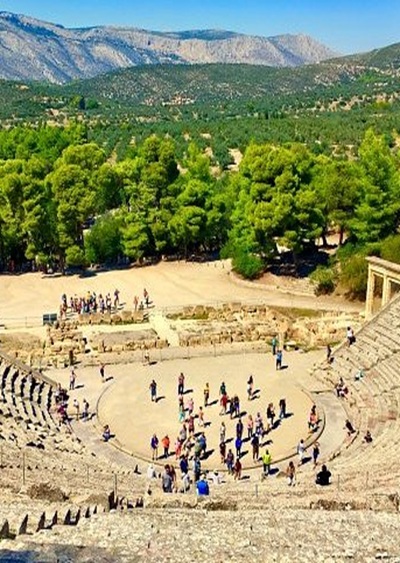




Leave A Comment